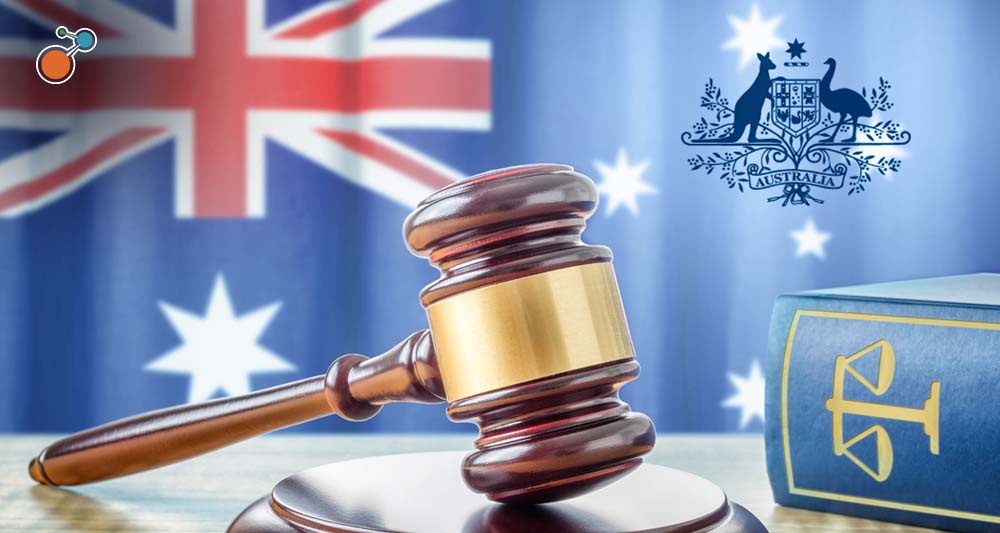We see a lot of confusion specific to the topic of force majeure. Often, executive management has the belief that force majeure clauses in their contracts protect them from a wide variety of disruptive events, and thus they may not invest appropriately in business continuity plans and strategies. However, the concept of force majeure is somewhat convoluted and often includes many variables. As a result, if an organization does not plan appropriately, it may actually be left unprotected and vulnerable to claims of breach of contract in the event of a disruption.
This article explores the history of force majeure and its current state application in contract law. Riskonnect (formerly Castellan) developed this perspective to help inform organizations about the potential issues associated with force majeure clauses and the need for additional preparedness activities to adequately protect the organization in the event of a disruptive incident. However, please keep in mind that we are not lawyers, and nothing in this article should be construed as legal advice (be sure to consult with legal counsel regarding this topic and appropriately balance contractual protections with business continuity planning strategies).
Background
At a high level, force majeure is the notion that parties to a contract could be relieved of their contractual duties when performance is prevented by a “force majeure event”.
The concept of force majeure, which originated in French law and is translated to English as “superior force”, is a French term used to describe events that are “acts of God”, acts of government, and any other unexpected event beyond the control of the parties within a contract. Under French law, force majeure is an event that is unforeseeable, unavoidable and external that makes execution of a contract impossible. Specifically, for a French defendant to invoke force majeure, the event must pass three tests*:
- Externality
The defendant must have nothing to do with the event’s happening. - Unpredictability
If the event could be foreseen, the defendant is obligated to have prepared for it (thus, being unprepared for a foreseeable event leaves the defendant culpable). - Irresistibility
The consequences of the event must have been unpreventable.
In summary, force majeure events may include any event beyond the control of the parties, such as a war, strike, riot, crime, or an “act of God” (e.g., flooding, earthquake, or volcanic eruption), such that the event passes the three “tests” listed above.
*The primary source information may be reviewed at www.trans-lex.org
United States Interpretation and Practice
In United States law, force majeure is related specifically to common law and contract law, and does not have Federal guidelines or parameters like French law. Thus, enforceability of a force majeure clause is highly dependent on a number of variables (including, but not limited to, State law, specific contract wording, circumstance, and Court interpretation).
However, a number of US resources attempt to apply force majeure to US law. For example, in Black’s Law Dictionary (9th ed. 2009) force majeure is defined as follows:
“An event or effect that can be neither anticipated nor controlled. The term includes both acts of nature (e.g., floods and hurricanes) and acts of people (e.g., riots, strikes, and wars).”
In addition, a number of States have language surrounding the applicability of force majeure. For example, under Tennessee law, the defense of force majeure is as follows:
“An ‘Act of God’, and ‘any misadventure or casualty is said to be caused by the ‘Act of God’ when it happens by the direct, immediate, and exclusive operation of the forces of nature, uncontrolled or uninfluenced by the power of man and without human intervention … [and] must be of such character that it could not have been prevented or escaped from by any amount of foresight or prudence, or by the aid of any appliances which the situation of the party might reasonably require him to use’”
Because there is not a single definition or standard of proof in the United States, organizations must be aware of how force majeure clauses have been (and are) interpreted and enforced, as well as how force majeure actually protects them during disruptive events. To explore this concept further, let’s take a closer look at three case studies.
Case Study #1
The United States District Court of Tennessee’s case “AMERICAN BOOK COMPANY v. CONSOLIDATED GROUP OF COMPANIES, INC. and CHRIS HINN” (2011) provides an illustrative example of how the state of Tennessee’s force majeure law (defined in the previous section) was interpreted and enforced in a case regarding the American Book Company’s (Plaintiff) argument that the Defendant had to pay for delivered goods (books), regardless of the Defendant’s argument that force majeure required them not to pay for the goods.
In the case, the defendant argued that their defense (to not pay for the books) was affirmed by force majeure. They submitted that the defense “was implicated by an act of the United States government when it adopted a regulation requiring that certain items to be used by children, including books, be accompanied by a certificate from an independent party that they are free from lead content”. They argued that the act of government had a direct effect on the agreement entered into by the parties, and because the Plaintiff did not deliver the goods with the necessary certificate, the Defendant was not required to pay for the goods delivered.
The Court ultimately decided that the Defendants’ defense of a government regulation being a force majeure event was unfounded and failed to meet the standard of the State law. The Court contended that a government regulation is not a “force of nature, uncontrolled or uninfluenced by the power of man and without human intervention.” In addition, the Court said that they “[could not] comprehend how the alleged government regulation was not anticipated such that it could support the defense of force majeure.”
Case Study #2
The United States Court of Appeals’ case “TRINH v. CITIBANK, NA” (1988) provides another perspective on force majeure applicability, but in a civil unrest case. In the case, Citibank (Defendant) operated a branch bank in Saigon, South Vietnam, in which Trinh (Plaintiff) had a savings account (with a contracted interest rate). The deposit agreement governing the account had a force majeure clause that read as follows:
“Citibank does not accept responsibility for any loss or damage suffered or incurred by any depositor resulting from government orders, laws … or from any other cause beyond its control.”
In April 1975, Saigon’s viability was becoming threatened as the North Vietnamese forces were closing in on the city. On April 24, 1975, on the eve of Saigon’s fall to the North Vietnamese, Citibank closed its Saigon branch, and cash from the branch was turned over to the National Bank of Vietnam. When the Plaintiff realized his interest deposits were not made to his account, he contacted the home office of Citibank who claimed that they were no longer responsible for paying interest on the account. Trinh then pursued recovery charges against Citibank, and Citibank argued a force majeure defense.
The Court ruled that the deposit agreement with Trinh required Citibank to pay ongoing interest to the account, as the force majeure clause did not relieve Citibank of its liability on the deposit. The Court reasoned that Citibank’s decision to close its Saigon branch was a matter of “voluntary choice” – not an act of God, act of government, or a fortuitous cause beyond its control.
In summary, the Court concluded that Citibank’s home office was liable for deposits placed in the foreign branch when the branch was “forced” to close in 1975 as a result of the impending overthrow of Saigon by revolutionary forces.
Case Study #3
Throughout extensive amounts of research, one of the few cases in which the Court upheld force majeure as an affirmative defense was in the United States District Court’s case of “RAW MATERIALS INC vs. MANFRED FORBERICH GMBH & CO” (2004). In the case, Raw Materials Inc. (Plaintiff) sued Forberich (Defendant) on grounds of contract breach, in that the Defendant did not provide goods (railroad rails) to the Plaintiff by the deadline expressed in the contract.
The Defendant argued a force majeure defense, asserting that “… its failure to perform should be excused because it was prevented from shipping the rail by the fact that the … port unexpectedly froze over …” before the goods could be shipped. Since in a typical winter, the port does not freeze over until late January, the Defendant argued that the event could not have been foreseen.
While the contract did not have a specific force majeure clause in it, the parties agreed that their contract was governed under the Convention on Contracts for the International Sale of Goods (CISG), which states:
“A party is not liable for failure to perform any of his obligations if he proves that failure was due to an impediment beyond his control and that he could not reasonably be expected to have taken the impediment into account at the time of the conclusion of the contract or to have avoided or overcome its consequences”
The Court ruled that the severity of the winter in 2002 and the early onset of the freezing of the port were “far from ordinary circumstances”, and thus the Plaintiff’s request for damages was not entertained.
Lessons Learned
Textbooks, the fall of Saigon and frozen waterways**? A reader of this article is probably wondering why Riskonnect couldn’t come up with better examples, or at least examples that are more focused on “traditional” business continuity events. Unfortunately, force majeure-related examples are difficult to find – but this demonstrates that many organizations are relying on a concept that is very difficult to defend without a true Federal mandate in the United States. With that said, these case studies illustrate a number of conclusions regarding force majeure applicability and enforceability, which also illustrate some common misunderstandings regarding force majeure clauses.
- Force Majeure Clauses are Not Standardized
A common standard does not exist in the US for developing a force majeure clause. A force majeure clause will always be interpreted in accordance with its language and context, like any other provision in a written contract, rather than with reference to its name. Thus, interpreting and enforcing a force majeure clause relies on a number of variables, not the least of which is circumstance. - Courts Tend to Interpret Force Majeure Clauses Narrowly
Meaning, only the events listed in the contract (and events similar to those) will be covered in a Court of law. Thus, if the contract does not explicitly call out the circumstance in which a force majeure clause may be invoked, the Court will not allow it as a defense. - Force Majeure is Not Intended to Excuse Negligence
If non-performance is caused by the usual and natural consequences of external forces, or if the intervening circumstances are specifically contemplated, it does not constitute a force majeure event. - Force Majeure Clauses Rarely Result in an Excuse of Non-performance
When a defendant relies on a force majeure clause to excuse non-performance, the defendant bears the burden of proof to establish that a force majeure event occurred. This burden of proof is extremely difficult to demonstrate, which has resulted in few successes (for defendants) in recent US Court cases. Some “successful” force majeure cases include “WISCONSIN ELECTRIC POWER COMPANY vs. UNION PACIFIC RAILROAD COMPANY” (2009) and “RAW MATERIALS INC. vs. MANFRED FOBERICH GMBH & CO.” (2004).
** Information cited in each of the three case studies summarized above was extracted from sources in Lexis-Nexis.
What Does This Mean for Organizational Preparedness Efforts?
Because proving force majeure events can be extremely difficult, it is critical that organizations actively prepare for disruptive events beyond just negotiating force majeure clauses into contracts. To clarify, we are not suggesting that organizations omit the inclusion of such clauses in their contracts or avoid trying to enforce force majeure clauses. Rather, we are suggesting that even organizations with the “best” force majeure clauses must actively assess their operating environments for events that could realistically lead to disruption, implement risk mitigation measures to reduce the likelihood of disruption on essential resources, and implement plans to decrease the impact associated with disruption – for the organization and its customers. Failure to do so will make it far more difficult for an organization to defend itself in a “force majeure situation”.
One last point – if your organization takes the approach of relying on force majeure clauses as the sole method of addressing non-performance, it is likely you will have failed in the eyes of your customers. Even if the force majeure argument is defensible in court, your reputation will suffer if you did not do everything practical to meet your obligations to your customer.
Overall, organizations can prepare for disruptive events efficiently and effectively, without necessarily investing considerable resources. Employing “all-hazards” planning efforts will ensure that an organization can respond to and recover from a disruptive event, even if force majeure clauses offer protection under the most extreme circumstance





